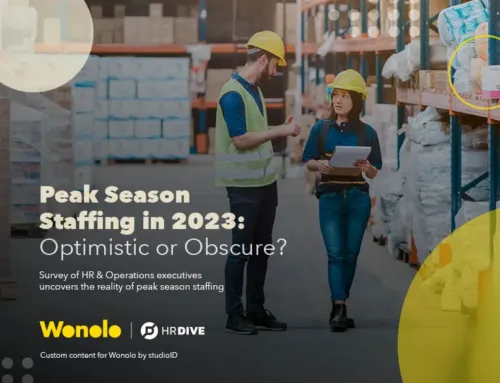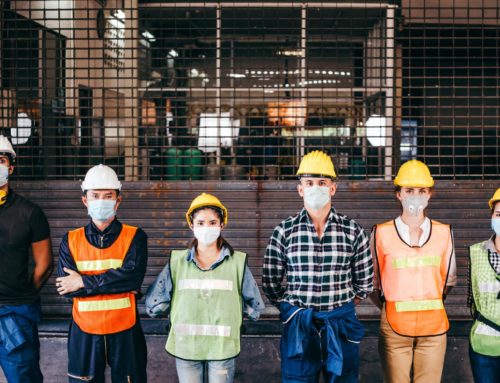Wonolo
 “To be disruptive, you have to break things.” These sage words, penned by The Coca-Cola Company’s Vice President of Innovation David Butler, couldn’t ring truer, particularly for those of us in the startup world.
“To be disruptive, you have to break things.” These sage words, penned by The Coca-Cola Company’s Vice President of Innovation David Butler, couldn’t ring truer, particularly for those of us in the startup world.
As one of the leaders of Coca-Cola Founders, a pre-seed, co-creation platform for Coca-Cola, Butler works to open up some of Coke’s biggest challenges to repeat founders and co-create new startups together.
Given this background, we were thrilled to have the opportunity to get his thoughts on startups, entrepreneurship, the gig economy, and of course, innovation. To learn more about where the next hotbeds of innovation are, how big companies can embrace the gig economy, and why Pokémon Go is such a big deal, read on.
Why did you decide to get into the world of startups and entrepreneurship?
The short answer is to give Coca-Cola more speed and flexibility. Every big, established company struggles when it comes to leveraging new, disruptive technologies and/or business models to drive growth. Think about it—they’ve spent decades iterating on their business model designing all of their processes and systems to scale it. Most struggle with the speed and flexibility they need to integrate new solutions without disrupting their core business. And that’s why we developed our Coca-Cola Founders platform.
What’s an emerging business sector that you’re particularly excited about? Why?
Our approach doesn’t start with predetermined sectors, business models or technologies. We start by opening up a big enterprise problem to a global network founders to co-create new solutions together. The founders are able to understand the problem/develop a solution (customer development) from the “inside-out” of a big potential first customer. This gives them a huge kick-start and unfair advantage. And Coke is able to integrate the solution much easier without disrupting its core business as the solution is designed abound a big, existing need.
The world of startups has extended far beyond Silicon Valley. Where do you think the next Silicon Valley is going to crop up?
Supporting diversity across the global startup ecosystem is one of our goals. The Coca-Cola Company has local operations in 207 countries. Through our Coca-Cola Founders platform, we can collaborate with essentially any founder, anywhere. In the last 2.5 years, we’ve co-created 12 startups in 10 countries. We love Silicon Valley but we also love Ho Chi Minh City, Mexico City, Sydney, etc.
By 2020, a study estimates that more than 40% of the American workforce, or 60 million people, will be independent workers. Do you agree with this projection? What do you foresee as the next type of job category to become part of the gig economy?
No one knows the future, but that’s one reason why we co-created and continue to support Wonolo. We’re very excited about the future of Wonolo.
In your recent blog, you discussed how it’s incredibly difficult for big companies to embrace “disruptive innovation.” How can big companies embrace the gig economy and accelerate its adoption?
I think startups focused on the gig economy need to find a clear connection to a big problem inside established companies. With Yong and AJ, we started with a big Coke problem, we call “out-of-stocks.” If our products aren’t on the shelf when someone wants to buy them, the user/shopper isn’t happy, the retailer isn’t happy and the manufacturer (Coke) isn’t happy. Every fast-moving consumer goods (FMCG) manufacturer like Coke struggles with this challenge. Through our platform, Yong and AJ were able to get “inside” this problem and test and learn their way forward to a solution. They thought, “What if there were a way for Coke to restock shelves on-demand?” This led to an early use case for Wonolo. Fast-forward to today and Wonolo helps solve out-of-stocks and other challenges we have inside of Coke, but of course, Wonolo also helps other companies that have this same challenge.
Based on your personal experience in the startup world, what’s the greatest lesson that you’ve learned?
I’ve learned a lot, but the greatest lesson would have to be—that most successful startups solve big problems that people will pay for. This sounds simple and maybe even easy—it’s not. There are lots of people with “great ideas,” but most don’t actually solve a problem. And for the ones that do, it’s really hard to actually get people to pay for them. If a startup can solve a big problem that a lot of people have and will pay for, chances are good that they can build a sustainable business.
And last of all, what do you think of this whole Pokémon Go phenomenon?
The growth is staggering no matter how you look at it, but what I think is interesting is the massive amount of data they are collecting. Pokémon Go uses and stores GPS location data. But that’s not all. Not only can the user’s device be located generally or precisely, but the app accesses the camera and the user’s storage, contacts, and network connections, among other things. Users logging in through Google also automatically grant access to their Gmail, Google Docs, and other Google applications. Being able to legally track the precise movements of millions of people at all times is as staggering as its growth.


![[Report] Beyond the Gig: Exploring Reliable Work Options for the Modern Workforce](https://info.wonolo.com/wp-content/uploads/2023/10/Worker-Preferences-Report-Header-Image-500x383.png)



